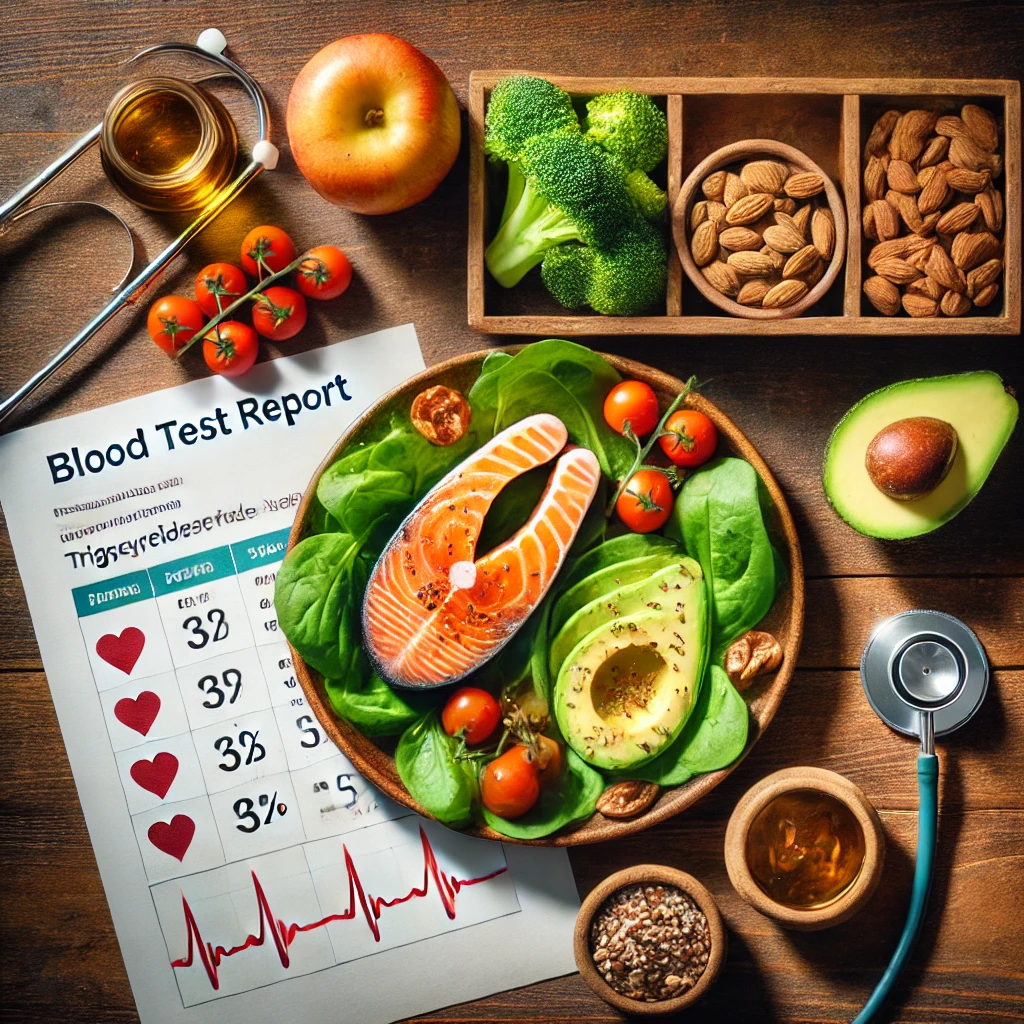Keeping Triglycerides in Check: Why It Matters for Your Health

Maintaining healthy triglyceride levels is essential for your heart and overall well-being. Triglycerides are a type of fat found in your blood. While your body needs some for energy, too much can increase your risk of heart disease, pancreatitis, and other serious health issues.
Why Do Triglycerides Matter?
When you eat, your body converts excess calories into triglycerides and stores them in fat cells for later use. If you regularly consume more calories than you burn—especially from sugary foods, refined carbs, and unhealthy fats—your triglyceride levels can rise. Over time, high triglycerides can contribute to clogged arteries and increase the risk of stroke and heart disease.
“Triglycerides are often overlooked compared to cholesterol, but they play a critical role in cardiovascular health,” says Dr. Christie Ballantyne, a leading cardiologist at Baylor College of Medicine. “By keeping triglycerides in check through diet, exercise, and, when necessary, medication, people can significantly lower their risk of heart disease and other complications.”
What Causes High Triglycerides?
Several factors can lead to high triglyceride levels, including:
- Poor diet – Eating too much sugar, refined carbs, and unhealthy fats
- Excess weight – Carrying extra pounds makes it harder for your body to process fats
- Lack of exercise – Physical activity helps burn triglycerides for energy
- Excess alcohol consumption – Alcohol can significantly raise triglyceride levels
- Underlying health conditions – Diabetes, hypothyroidism, and liver or kidney disease can all contribute
- Genetics – Some people have a genetic predisposition to high triglycerides
How to Lower Your Triglycerides
The good news is that you can take control of your triglyceride levels by making a few lifestyle changes:
- Eat a heart-healthy diet – Focus on lean proteins, healthy fats, whole grains, and plenty of vegetables while cutting back on sugary foods and refined carbs.
- Exercise regularly – Aim for at least 30 minutes of moderate activity most days of the week. Walking, biking, or swimming can all help lower triglycerides.
- Limit alcohol – Even small amounts of alcohol can raise triglycerides, so moderation is key.
- Maintain a healthy weight – Losing just 5-10% of body weight can have a significant impact.
- Consider medication if needed – For some, lifestyle changes aren’t enough. Talk to your doctor about whether medications like statins or fibrates may help.
New Research on Triglycerides and Health
Recent research, including a study published in the Journal of Clinical Lipidology, has provided valuable new insights into triglyceride disorders such as chylomicronemia, a rare condition that causes extremely high triglyceride levels. The study, led by researchers at Baylor College of Medicine, Mayo Clinic, and Université de Montréal, found that chylomicronemia affects about 1 in 500 U.S. adults, with certain groups—such as men, middle-aged adults, and Hispanic populations—being at higher risk.
Understanding conditions like chylomicronemia is important because they can lead to life-threatening pancreatitis if left untreated. These findings will help doctors better identify and treat those at the highest risk.
Take Charge of Your Health
Take a moment to check in on your heart health. If you haven’t had your triglycerides tested, ask your doctor about a simple blood test that can provide a clearer picture of your risk. By making small but powerful changes, you can take control of your health and reduce your risk of serious complications.




